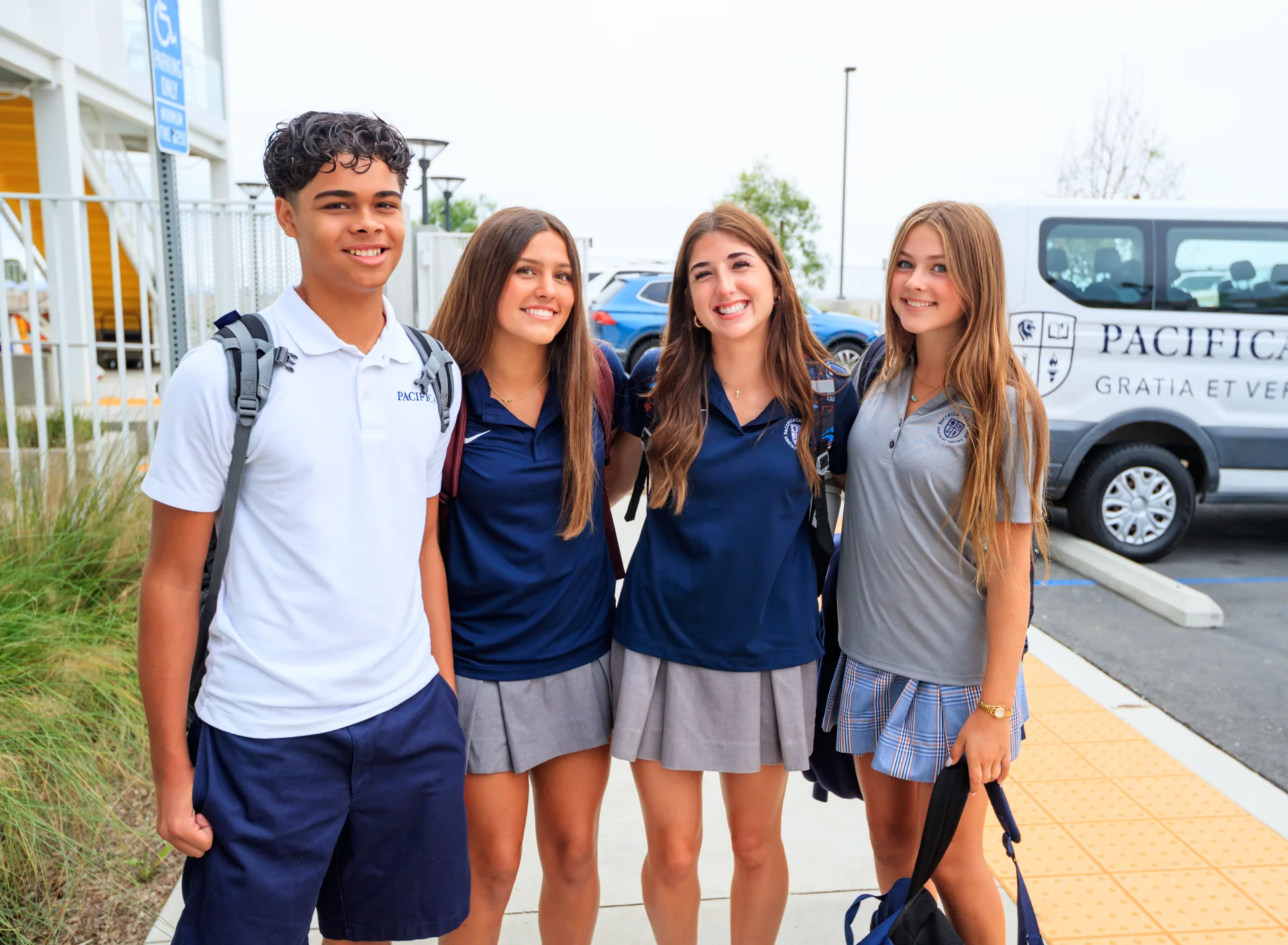Classroom Experience
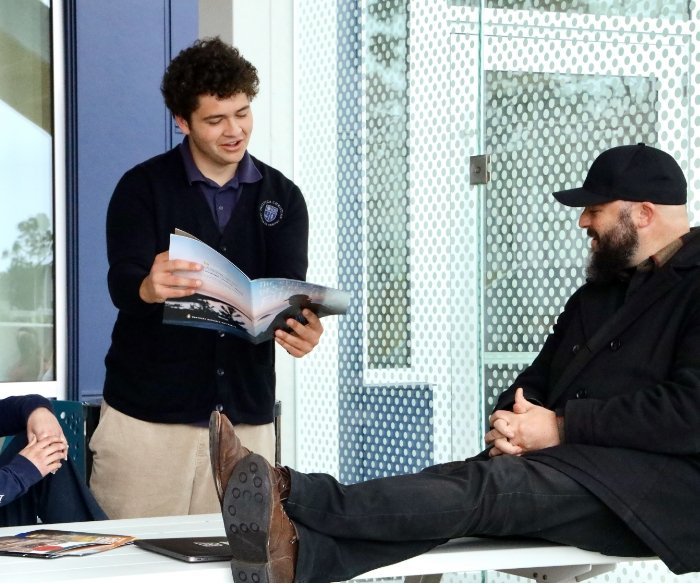
The Pacifica Core
In order to prepare students for a flourishing life, all students at Pacifica take our core curriculum classes. The Pacifica Core is grounded in broad historical study and practice of virtue and theology.
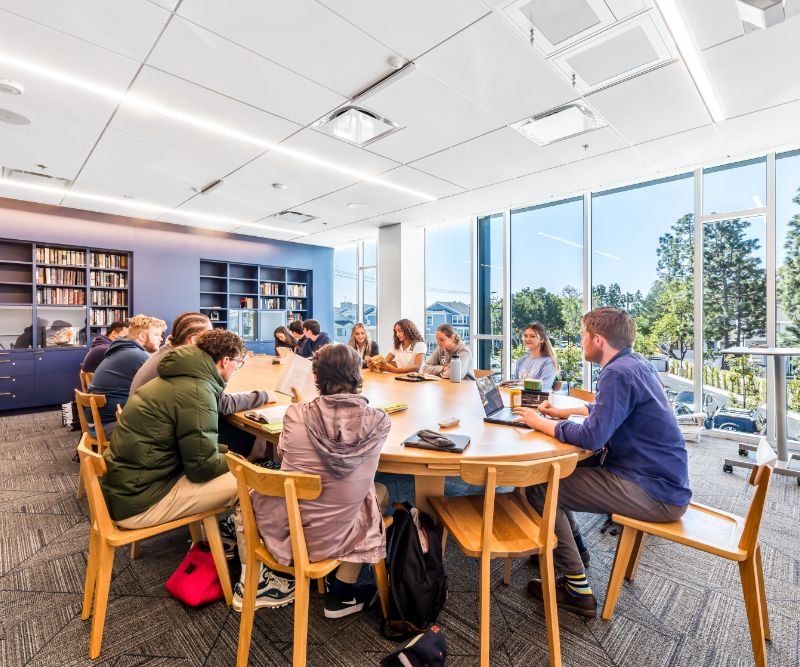
Harkness Table & Discussion-Based Learning
At Pacifica, our primary mode of teaching takes place around Harkness Tables. A Harkness table is a long oval table used to connect students and teachers together in physical space in order to facilitate good discussion.
A discussion is a mini-quest for truth with reference to a common text, where the truth is something unknown, but discoverable. We are not building the truth, we are searching for it together. The truth is something “out there” that we have to find as a group. A discussion is thus full of adventure, twists and turns, ups and downs, false paths, and epiphanies. Beliefs (not just feelings) are shared out into the room and made vulnerable to our table-mate’s scrutiny and criticism, so that those beliefs may be changed, further refined, and/or solidified. There is therefore no place for naive dogmatism, skepticism, or relativism in a good discussion, because a good discussion assumes that truth is something we can approach and even obtain; that if we look for it we can find it. And yet, a good discussion recognizes that while truth can be known, it is also difficult to know given our fallenness and finitude, as well as our locatedness in particular cultures and times. Discussion participants therefore must approach discussions with humility, recognizing our need for community and the wisdom of the past in order to know the truth.
In a Pacifica discussion, the text is the teacher, and the teacher is the facilitator of the discussion about the text. A good teacher models humility and discipleship to the text, as well as confidence of belief in objective truth, and a willingness to pursue continued growth and learning. A well-led discussion will accordingly affirm the inherent value of every human individual, respect their need to grow and develop as a person in process, and will be engaged in discourse with charity and without anxiety, trusting that God is the one primarily and ultimately responsible for student growth and development.
Students at Pacifica are encouraged and trained to be who they are, say what they think, and to love one another. They are trained to understand that they are not reducible to their ideas, that their honest thoughts matter, that they are not always right, and that they ought to stick to the question at hand and the text at hand.
It is this environment and this pedagogy that grounds all our learning, and it is one of the many things that makes our school unique.
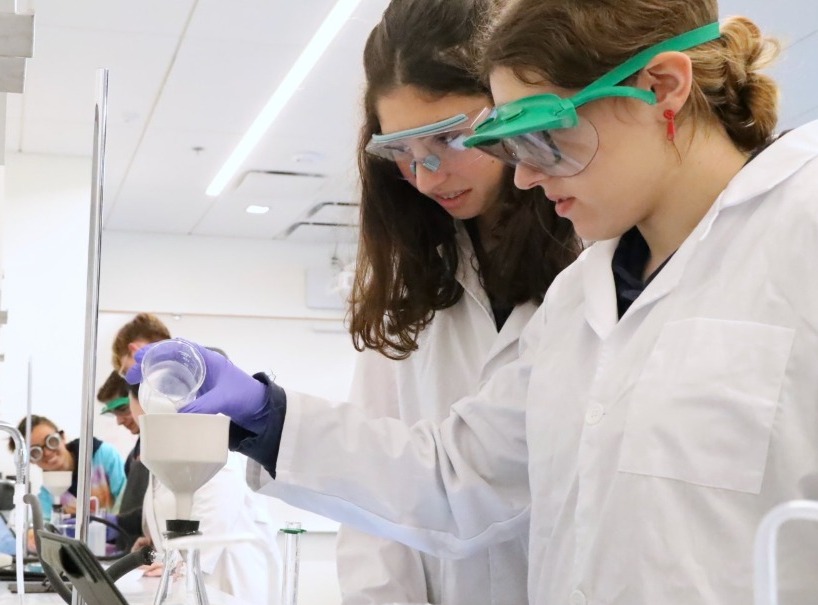
STEAM at Pacifica
STEAM is an educational approach to learning that uses Science, Technology, Engineering, Arts, and Mathematics as access points for guiding student inquiry, dialogue, and critical thinking.
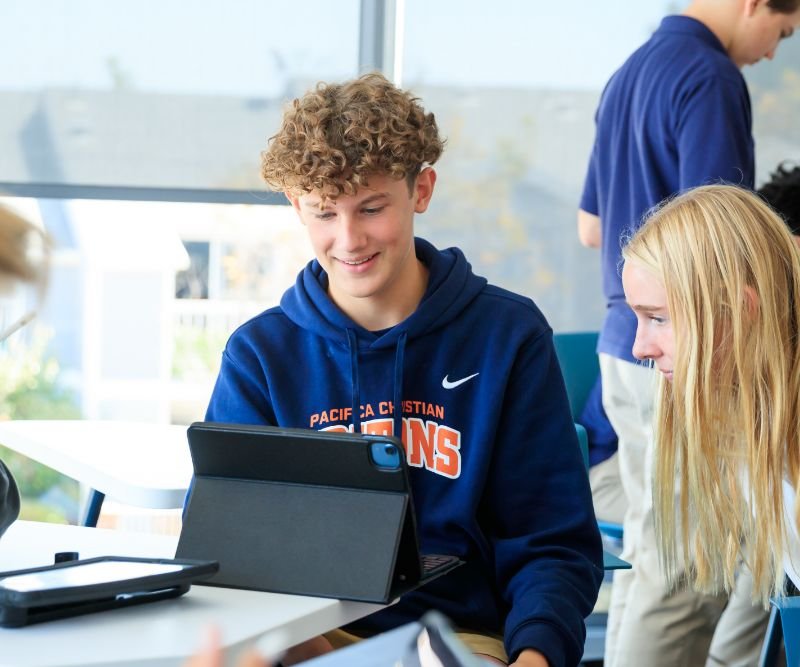
Technology & Wisdom
At Pacifica we believe that technology is a tool we can use to promote humane learning. However, as with all tools, proper use requires knowing what tools are for, accepting certain responsibilities for their proper use, and wisdom to know how and when and where to use them or not use them.
It is for these reasons that we take a wisdom approach to technology. We neither avoid technology use altogether, nor use technology in an uncritical or unrestricted manner. We recognize that our technologies are no longer neutral (if they ever were!), and so we seek to teach students about the ways in which technology can have a tendency to distract us, to make us addicted to our base appetites, and can cause us to miss the things that are most valuable in life. To that end, we restrict student devices via our 1:1 iPad program; we encourage parents to use ScreenGuide and monitor their student’s devices; we put cell phones in caddies in each classroom so that they are not a distraction during class; we use paper whenever possible to read and take notes; and we talk to our students repeatedly about what it means to make wise choices with their technology relative to the values we hold. All of these things serve to create an environment where technology is present, but not in control of our lives.
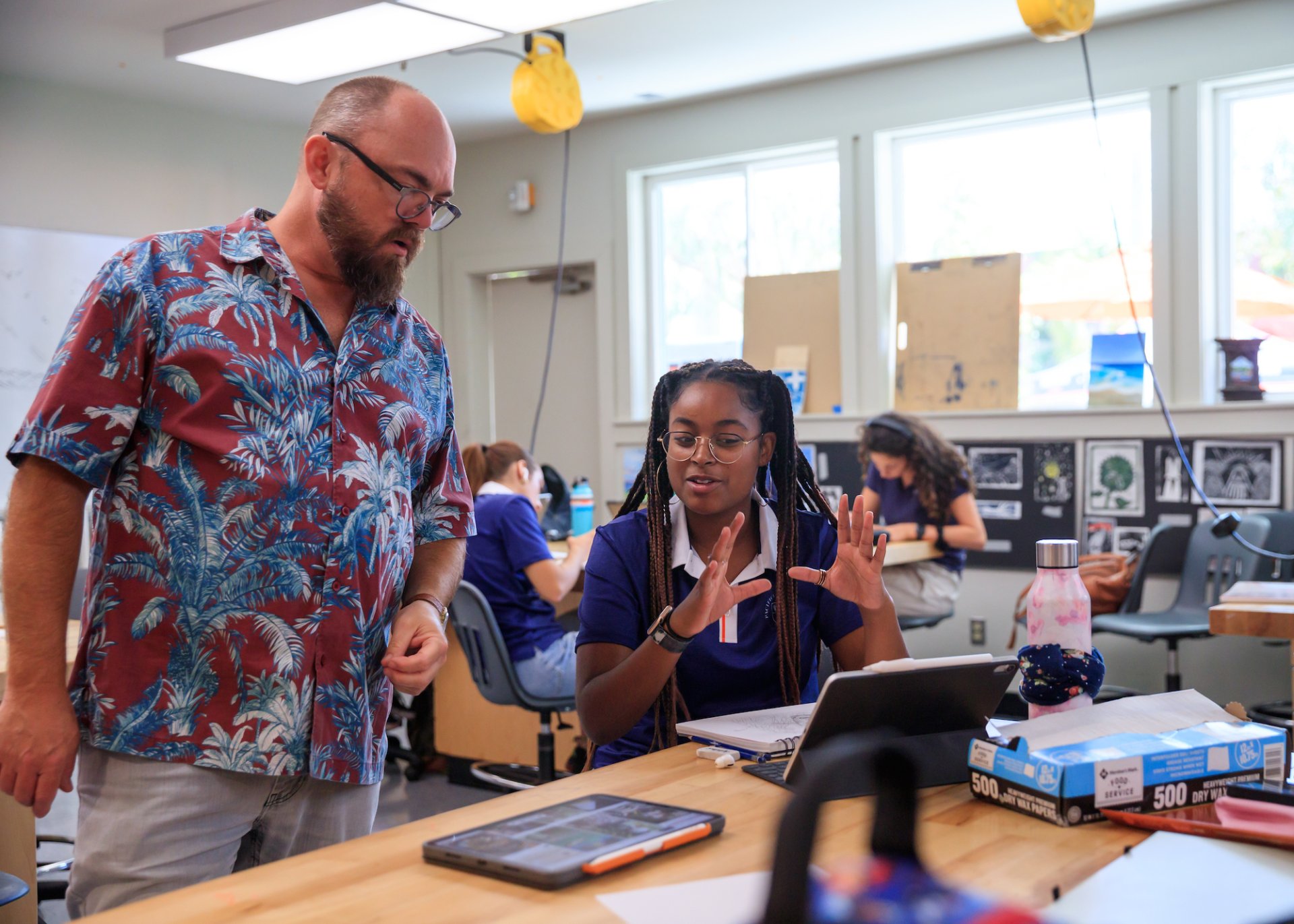
Academic Advising
The Academic Departments strive to meet each student’s unique academic needs. We support each student where they are, helping each one improve, whether that be making the jump from a ‘C’ to a ‘B’ or learning what it takes to produce high quality work and change a ‘B’ to an ‘A’.
Independent Learning Time & Study Halls
Every Pacifica student has Independent Learning Time built into their schedule in which they have dedicated time during the school day to complete school work, meet with available teachers, or get help from their peers. This Study Hall period instills effective time management skills, helping students learn how to use their time wisely.
LEARN MORE ABOUT OUR ACADEMIC SUPPORT PROGRAM
Four-Year Planning
With our administrative team’s help, every student creates a personalized four-year plan during their freshman year. We then revisit their plan on a yearly basis, ensuring that our students are continuing to reach their goals. We guide students as they select courses, co-curricular activities, internships, summer programs, and volunteer opportunities that align with their strengths, personal goals, and college aspirations.
LEARN MORE ABOUT OUR COLLEGE COUNSELING PROGRAM
Teacher Office Hours
Pacifica teachers are accessible. Each week, our teachers devote their time to set office hours. Students can take advantage of meeting with any of their teachers one-on-one on a weekly basis.



